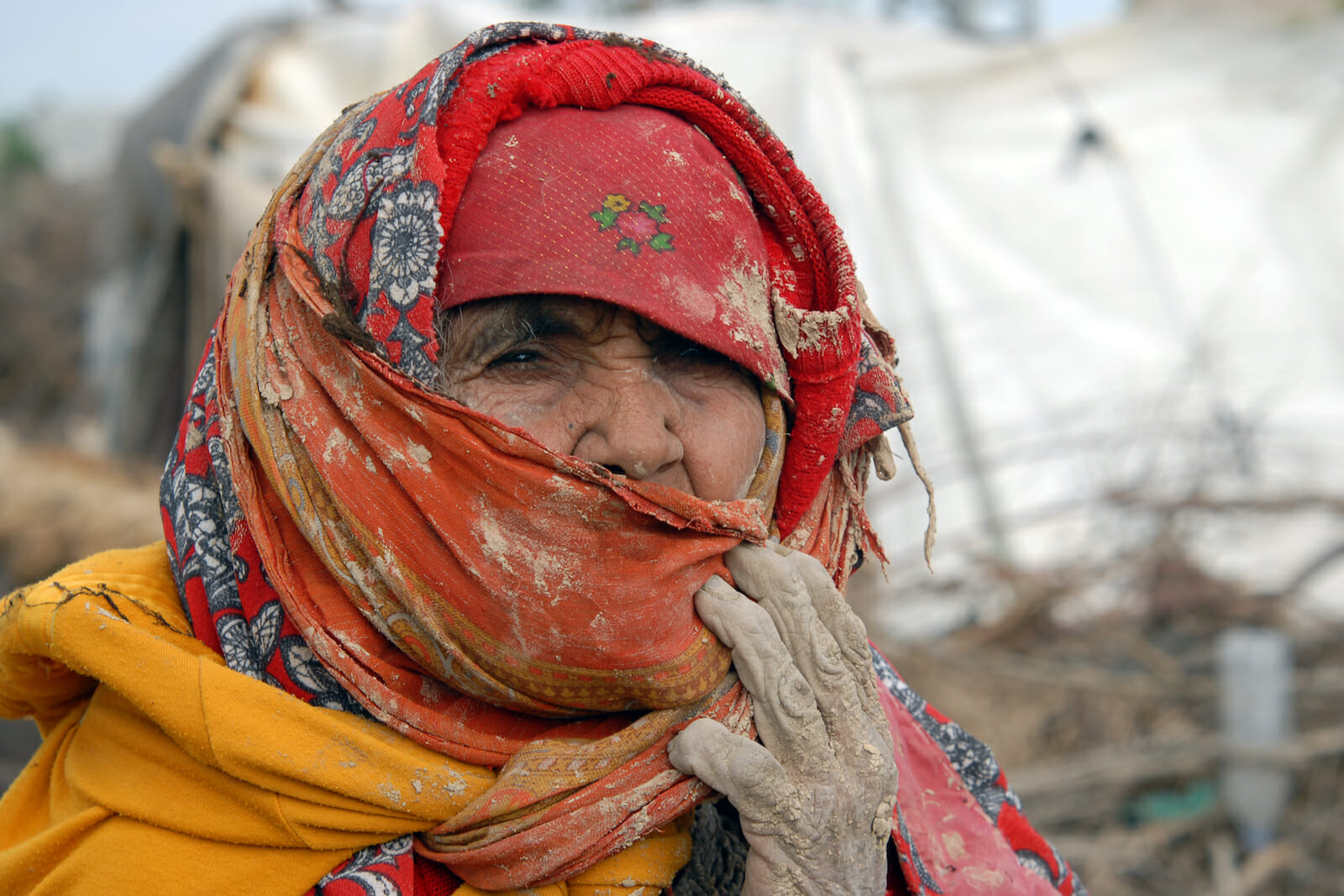
Culture
Women’s Rights: From Ataturk to ISIS
I quote Ataturk, who began his career as a politician in 1923 by making a series of speeches demanding political rights for women. Now, at first blink it would be difficult to imagine anything more improbable than an Ottoman pasha and a general beginning his political career on a feminist platform, but that’s exactly what he did. He said, with his usual terseness and clarity, “Our most urgent task today is to catch up with the modern world.” “We will not catch up with the modern world if we only modernize half the population.”
“We” refers to Turkey, of course. Simple, clear and, I think, overwhelmingly true. The same is true in the Arab world today and is one of the more encouraging factors in Iraq, where women have done better than in most other places and will play an increasingly important role in Iraqi political society.
These were some of the remarks of Professor Bernard Lewis who researches relations between Islam and the West regarding the status of women in the Middle East, presented at the Pew Forum in 2006. But today, we see that his attitude towards the outlook of the role and status of women in the Middle East was too optimistic: “In today’s Turkey, where Lewis had acknowledged Ataturk and his efforts regarding modernization, we now observe that Erdogan, its current president, comments on the number of children and women’s delivery, and even negates the equality between women and men, and violates the personal privacy of citizens. In Iraq, where the status of women was improving from Lewis’s perspective in past years, today we are confronting the ISIS phenomenon which implements the most anti-women laws.”
In January 2015, ISIS supporters published a manifest in the virtual environment, “Women in Islamic Government,” which summarized their attitudes towards women. ISIS’s purpose was an answer to the West. The authors of this Arabic pamphlet noted that women have to be relieved from the West by following their ideology. ISIS states that women must live with stillness because movement is a masculine characteristic. ISIS aggressively attacked feminism and referred to it as a Western plan for women, stating that removal of the lines between “different roles of each sex” has made people forget how to worship God. The main role of women is housekeeping and taking care of children, and they should be kept away from society. They are allowed to leave the house only under three conditions: (1) to study theology and religious courses, (2) visiting a female doctor or teacher, and (3) participation in jihad with Islamic State Fatwa under certain circumstances.
But is this ISIS attitude new? Reviewing the opinions of contemporary Islamic thinkers reveals that they formulated these attitudes before ISIS. For example, Sayyid Qutb, one of the theoreticians of the Muslim Brotherhood in Egypt, and jihadi groups like ISIS, condemn the status of families and women in Western countries: “if woman’s role is merely to be attractive, sexy and flirtatious, and if woman is freed from her basic responsibility of bringing up children; and if, on her own or under social demand, she prefers to become a hostess or a stewardess in a hotel or ship or air company, thus using her ability for material productivity rather than the training of human beings, because material production is considered to be more important, more valuable and more honorable than the development of human character, then such a civilization is ‘backward’ from the human point of view, or ‘jahili’ in Islamic terminology.”
In his book, The America I Have Seen, Qutb denounced primitive jazz music and loud clothing, the obsession with body image and perfection, and the bald sexuality. The American female was naturally a temptress, acting her part in a sexual system Qutb described as “biological”: “The American girl is well acquainted with her body’s seductive capacity. She knows it lies in the face, and in expressive eyes, and thirsty lips. She knows seductiveness lies in the round breasts, the full buttocks, and in the shapely thighs, sleek legs — and she shows all this and does not hide it.”
A dance in a church basement is proof of animalistic American sexuality: “They danced to the tunes of the gramophone, and the dance floor was replete with tapping feet, enticing legs, arms wrapped around waists, lips pressed to lips, and chests pressed to chests. The atmosphere was full of desire…”
But it wasn’t just Qutb who denounced the West and the emancipation of women. Ali Shariati, the “Islamic Revolution” theorist, who was originally Shiite and Iranian had a great effect on Islamist ideology during the 1979 Revolution, was also highly critical of the West and the Western approach towards women. In a speech entitled “The Expectations of the Current Era from a Muslim Woman” addressed the bourgeoisie and the legacy of Modernism.
“The bourgeois class is low class against feudalism. The feudalism system is an anti-human system, however, the values and ethics of nobility is at least preserved in it. But bourgeoisie neglects human values and only recognizes money as a value.” In the same speech he addressed Freud. “Freud went against human values and ethics. He lowered the man as a sexual animal and economic animal. The bourgeoisie distorted everything and created a new religion itself, whose prophet was Freud, whose faith was sexuality, whose temple was Freudism, and whose first sacrifice was the woman’s human values. The Freudism school stupefies the youth by sex. Freudism resulted in exporting a sexual commodity from the West to the East to kill human freedom in the East.”
Shariati expresses that the traditional society of the past was a spiritual-moral-religious one. The woman in that society was sired by the beloved, and had a high and noble position regarding inspiration, emotion, and psychology. But in the modern era, women have become a “free captive” used to “destroy the noble and ethical values” making society absurd and commoditized. He adds, “All women can be bought, only their price is different. The first lady of the USA can be purchased as well. The only difference between whom and the ones who stand at the crossroads is in their price.”
According to Shariati, the West has attacked the East and destroyed everything the East once represented. He states, the “freedoms formed by the West capitalism” are all sexual freedoms. “Western capitalism filthy system has given sexual freedoms to the Eastern women to exploit their nations. Modernism pulled out the absurd modernist Eastern woman from the female bathhouses and pushed them towards useless civil institutions. Women’s associations have been established under various names and invite the absurd women from their houses to these cold water-less and steam-less female bathhouses.”
Shariati worried about women and their role. He speculated that the West aims to force the Eastern women into prostitution with a conspiracy-based strategy under the title of freedom. From his perspective, “hijab” was a weapon against the West. A few months before his death, he said: “Chinese women in the Mao era wore ‘sack cloth’ and this way humiliated the European girl. This ideological clothing is better than the West bourgeoisie clothing. Sack clothing enables standing against the West, but wearing Western clothes means accepting the decadent culture of the West.”
The interesting point is that Shariati himself wore a tie, which is a symbol of the modern bourgeoisie clothing style of the West. He introduced himself as the opposite of what the “reaction” called clergy, and his advocates know him as the pioneer of “Islamic Protestantism,” but his remarks indicate that his attitude towards women and the West wasn’t any different from traditional chants of the clergymen.
For decades the issue of a woman’s role in society has been complicated and a taboo for Muslim scholars and Islamist groups. The reality is that as long as Islamists are not able to clarify their relation to women’s rights and their contemporary demands, they won’t represent minorities. Their main problem is the lack of recognizing “others” and making a distinction between us (Muslims) and others (non-Muslims).

